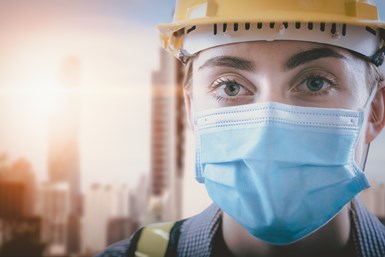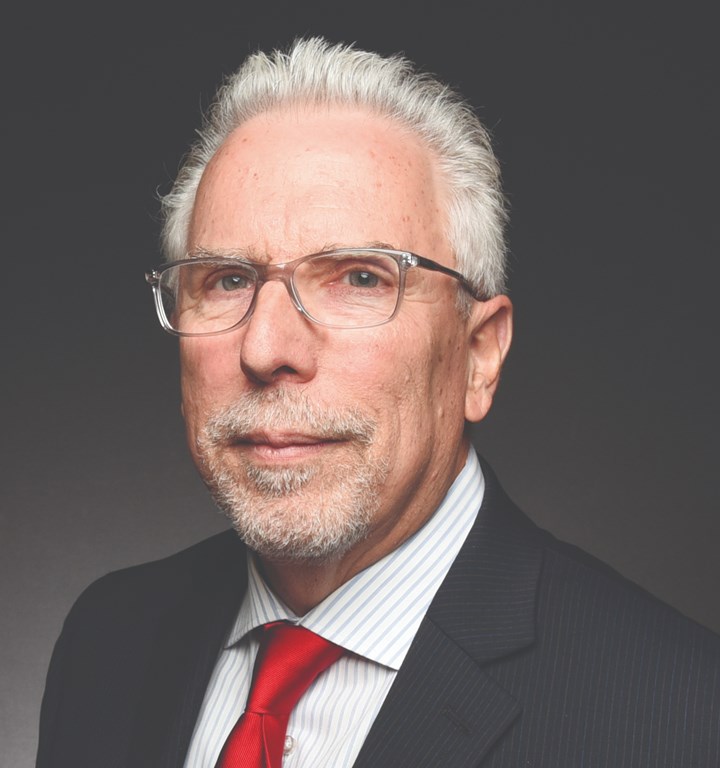Precision Machining — What Has Changed Since COVID-19 Began?
Is new technology the change? The essential workers that have been making parts that make a difference are the real change — and it is a positive change that bodes well for manufacturing, workforce and our economy.

What has changed since the interruption of COVID-19 into every aspect of our lives? It would be easy to list the negatives — shortages of crucial items in our stores, ever-changing orders from authorities, millions of people laid off and huge amounts of government spending that will inevitably need to be repaid.
But the view from the precision machining shops that were on the frontlines throughout the crisis have a very different viewpoint. It’s a positive story about their people coming together to make a difference — for themselves, for their team and for all of us.
Valuing the Work — Critical Manufacturing
In mid-March, when the lockdown orders were popping up state-by-state like new leaves on a tree, our shops in several cases had conflicting priorities: requirements to make needed parts and state mandates not to operate. Some states did better than others, until the criteria for “essential manufacturing” was issued by the U.S. Department of Homeland Security’s Transportation Security Administration.
“Workers necessary for the manufacturing of materials and products needed for medical supply chains, and for supply chains associated with transportation, energy, communications, food and agriculture, chemical manufacturing, nuclear facilities, the operation of dams, water and wastewater treatment, emergency services and the defense industrial base. Additionally, workers needed to maintain the continuity of these manufacturing functions and associated supply chains.” (bit.ly/PMPA-PM1220)
Validation from the federal government that our work was essential and critical gave our talent an important calibration.
“Workers necessary for the manufacturing of…” is a powerful statement declaring the value that our performers provide — and the statement comes from no less than the federal government’s Department of Homeland Security. The declaration that what we manufacture is critical sent a strong message of validation. Our manufacturing shops weren’t just “business as usual,” but rather “critical manufacturing” operations. The definition of critical manufacturing describes much of what PMPA members provide: “materials and products needed for medical supply chains and for supply chains associated with transportation, energy, communications, food and agriculture, chemical manufacturing, nuclear facilities, the operation of dams, water and wastewater treatment, emergency services and the defense industrial base.”
Critical manufacturing also illustrates the essential nature of our work — and workers. While much of the economy was sitting on the bench, our performers were in the game, making the parts that were so essential that the federal government, and the governors who followed the government’s lead, carved out exceptions.
Validation from the federal government and the recognition from the state governors that our work was essential and critical gave our talent an important calibration. Their performance had purpose and was valued.
It is one thing to know nominally that you are making parts for a medical device or a vehicle. It is quite another to understand that the parts you are making are human- safety critical and urgently needed to save lives and battle this new unseen and little understood public health threat.
Our society has long valued the medical professions. And our engineers and shop performers have long had the pride of knowing the satisfaction of what they can create and the tolerances that they can hold. But, for the first time, the national spotlight was on our teams in manufacturing who were now “the hands of the physician,” creating the devices — valve components, fittings, connectors and other parts needed to make the ventilators so urgently needed in this pandemic health crisis.
We have a human context for understanding the purpose for our work. In 2020, this pandemic shows the existential value and the existential joy of manufacturing parts from raw materials that, once transformed, became the means of delivering life — of saving lives. Manufacturing is no longer about just making things, but about making things that make a difference in
people’s lives.
Valuing Each Other
I find it interesting that while we are all facing the challenge of this little understood and unseen virus, we all seem to increase our tolerance and consideration for the others working with us. I am aware of the thinking that we are all in this together, but, for the last 50 years of my life, those words have been little more than a trite homily which was taken for granted — if acknowledged at all.
Suddenly, nothing could be taken for granted anymore. Certainly not our jobs — our shops could be closed by a governor’s whim — and certainly not our co-workers. In those early days, we heard large numbers quantifying deaths, but little about the demographics succumbing, nor the actual risk of fatal infection. So we kept our social distance and did our best to communicate and share, all the while wondering if this might just be our last interaction (for a while or forever) with the folks who bring us the bars, or empty the chip carts, or prepare the setup cart, or confirm our parts’ quality. Suddenly, this virus made us even more aware that we couldn’t take anyone for granted.
This punctuation of our prior comfortable thinking was, I am convinced, a very good thing. As we lost our ability to take things for granted, we gained a sense of value for those very same things. As our assumptions of “of course they will…” transformed into “what if they …”, we all grew in our care and consideration and realization that we are in fact Better Together. We valued the others that we worked alongside, as we considered what our day might be like without their talents, their knowledge or their gifts.
Do we still get aggravated when someone fails to do whatever it was that they forgot? Of course. But, at the same time, we have recalibrated our reactions. We have a better understanding of what level of inconvenience that failure might be — in a world where we cannot take for granted a job, paycheck or comfortable breath. “Existential” might not be a word that you expect to find in a machining magazine, but “existential” is, in fact, the best way to describe the lens through which we are all seeing the world these days.
Valuing The Change
What impact will new technologies have on our shops in the post-COVID-19 world? From one point of view, the impact will be insignifiant compared to what we have all endured which has “tempered our steel.” From another point of view, all of the technologies will have a significant impact because they are in the hands of our increasingly focused and talented workers with their new “existential purpose” — to make the things that make a difference. This purpose is now undeniable and burned prominently into their and our consciousness.
Post COVID-19, the talented performers of the precision machining industry will have transformed. The nation —the world — has recognized their skills and work as critical and essential. They have a pride in making a difference, while others were sidelined or benched. Our performers now realize that they aren’t just making things at their machines — they help the physician and the respiratory therapist by proxy of the parts they make.
And as we all rise together to meet the challenge, we find a new space of grace for co-workers, suppliers and customers — recognizing that all are doing their very best.
What has changed since COVID-19 began? The acceptance of the fact that, in our industry, we are all Better Together. It is not technology. It is our humanity that makes this so.
Read More Articles from PMPA:
- Interview with Cate Smith About PMPA’s Annual Meeting 2020
- The Most Common Types of Finishing Services for Precision Machined Components - Part 2
About the Author
Miles Free III
Miles Free III is the PMPA Director of Industry Affairs with over 40 years of experience in the areas of manufacturing, quality, and steelmaking. He helps answer “How?, “With what?” and “Really?” Miles’ blog is at pmpaspeakingofprecision.com; email – mfree@pmpa.org; website – pmpa.org
Related Content
Do You Have a Quoting Process?
The only way to have repeatable results is to have a process.
Read MoreManufacturing Skills Training: Virginia Martinez and Laiken Carrillo
Roles of Women in Manufacturing Series: A precision machining career starts with skills. Virginia and Laiken share their journey and how they help prepare the next generation.
Read MoreTurned and Polished Steel Barstock: How It Is Manufactured, How It Impacts Your Shop
Understanding the benefits provided by turned and polished steel barstock and its differences from cold-drawn steel barstock can help you and your team avoid unexpected performance issues.
Read MorePrecision Ground Barstock: How It Is Manufactured, Benefits to Your Shop
Understanding the benefits provided by precision centerless ground barstock can help you avoid false economy and optimize the work you quote by maximizing benefits to your manufacturing process and customer.
Read MoreRead Next
A Tooling Workshop Worth a Visit
Marubeni Citizen-Cincom’s tooling and accessory workshop offers a chance to learn more about ancillary devices that can boost machining efficiency and capability.
Read MoreSeeing Automated Workpiece Measurement in Real Time
User-friendly inspection software for CNC machining centers was shown at IMTS 2024 monitoring measurements between and after machining while performing SPC based on recorded measurement values.
Read MoreDo You Have Single Points of Failure?
Plans need to be in place before a catastrophic event occurs.
Read More













.png;maxWidth=300;quality=90)








